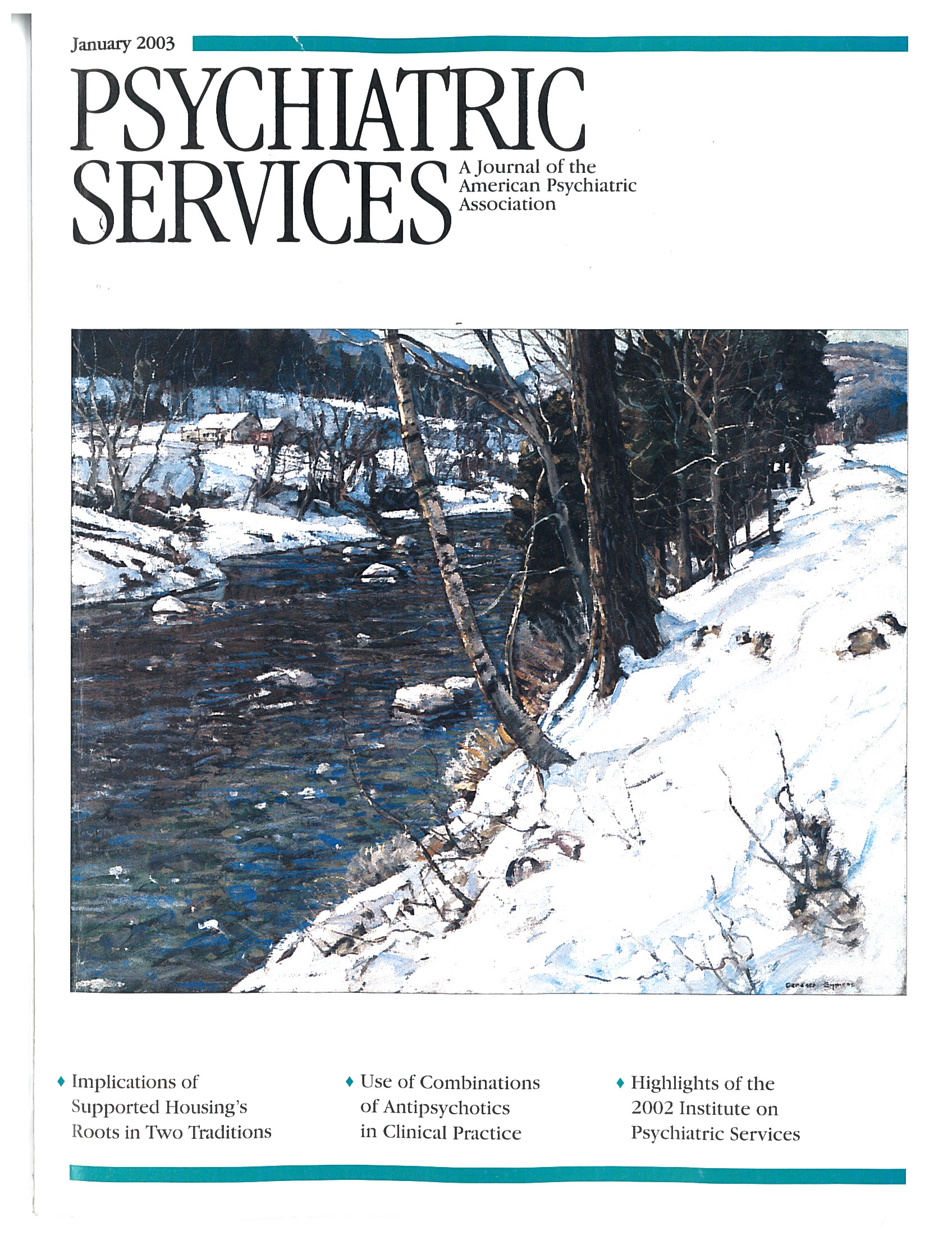The WHO Draft Manual on Mental Health Legislation
To the Editor: The Taking Issue piece by Dr. Stone in the September issue (1), criticizing the World Health Organization's draft manual on mental health legislation, coincided with publication of an editorial in the British Medical Journal (2) that gave high praise to the "three groundbreaking reports from the World Health Organization." Two of these reports describe the state of mental health care in the world, while the third offers ten well-tested recommendations that countries may adopt in order to improve care. Dr. Stone would do well to read the BMJ editorial and the three reports in order to familiarize himself with WHO's comprehensive work.
Publication of Dr. Stone's Taking Issue also comes at the very time when the World Psychiatric Association—the organized world community of psychiatrists—has bestowed on WHO a medal and a diploma recognizing its work in 2001 and 2002. These accomplishments included World Health Day 2001, which was devoted to mental health for the first time since 1959 and which was celebrated in more than 150 countries; the mobilization of political will through the Ministerial Round Tables on Mental Health held at the World Health Assembly (WHA) in 2001; the release of the World Health Report 2001: New Understanding, New Hope; and the endorsement of WHO policies and strategies by the WHA held in 2002. Dr. Stone seems unaware of these developments.
Dr. Stone is entitled to his opinions even if they set him apart from most of the psychiatrists he purports to protect. It is also his right to set himself apart from the organized community of nations when he writes that the United Nations declarations "target the enterprise of psychiatry as a threat to human rights." But psychiatrists who struggle to raise the standards of mental health care worldwide will respectfully tell Dr. Stone that to promote the rights of consumers and families is not an indictment of psychiatry because we seek to eradicate human rights violations in mental institutions. Psychiatric care that upholds human rights is better psychiatric care and is absolutely congruent with the need to promote, in Dr. Stone's words, "necessary and efficacious treatment of the people who are seriously mentally ill."
Dr. Stone's editorial is a singularly perverse attempt to confuse WHO's uncompromising defense of the human rights of persons with mental disorders and their families (see the Caracas Declaration, November 1990 [3])—and its continuous worldwide efforts to advance mental health care—with antipsychiatry, Soviet persecution, Scientology, and Nazism.
As to the intellectual issues, readers are entitled to expect more objectivity, analysis, and elaboration from a professor at a leading American university who is writing in a prestigious scientific journal. (Surprisingly, the distinguished editor of Psychiatric Services has failed to fully investigate the facts for the benefit of readers less familiar with the work of WHO.)
My final comment is indeed a request. Professor Stone: Leave Nazi Germany and its murderous T4 policy out of the debate about WHO. Do not cheapen history for the sake of a self-initiated inquisition. Recent history is still too vivid for many people who do remember that human rights, even the right to live, were denied to those who were different, be they mental patients, Jews, homosexuals, or Romas.
Dr. Levav is affiliated with the mental health services department of the Ministry of Israel and was formerly the program coordinator of the Mental Health and Healthy Life Styles Program of the Pan American Health Organization/World Health Organization in Washington, D.C.
1. Stone A: The WHO draft manual perpetuates barriers to care. Psychiatric Services 53:1055, 2002Link, Google Scholar
2. Thornicroft G, Maingay S: The global response to mental illness. BMJ 325:608-609, 2002Crossref, Medline, Google Scholar
3. Levav I, Restrepo H, Guerra De Macedo C: The restructuring of psychiatric care in Latin America. Journal of Public Health Policy 15:71-85, 1994Crossref, Medline, Google Scholar



